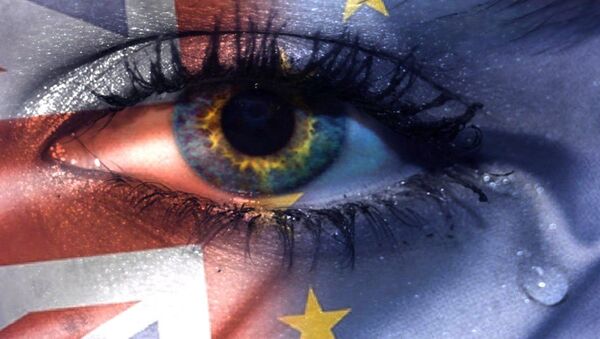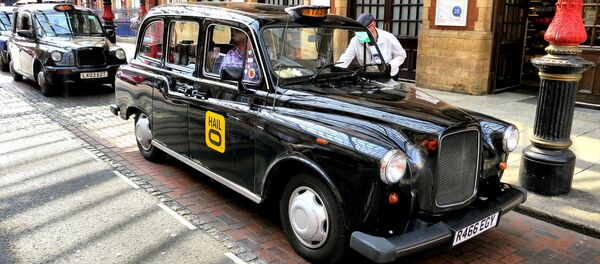"If I woke up on the morning of 24 June 2016 and it was a Brexit, I would be upset and deeply, deeply worried because I think the EU is a fantastic thing, not just the idea, but it has also been working very well until now," Anja Schiefler told Sputnik.
Anja has lived in Scotland for 20 years with her Scottish husband and two children, who have dual British and German citizenship. And despite having strong views on the pending referendum, she is not allowed to vote.
"I only hold a German passport — so I'm not allowed to vote in general elections — or the EU referendum."
"I think it's very sad that somebody like me, a European citizen who has been paying taxes for 20 years, cannot vote."
But if Anja could vote, she would "definitely vote to stay in the EU," citing concerns that a potential Brexit would impact on her job as a teacher and put a question mark over whether she could remain in the UK and still call it "her home".
Having arrived alone in Scotland 20 years ago, Anja soon settled down and had a family.
A potential Brexit concerns her not only because of the economic impact it could have — but because of a possible separation from her children.
'Immigrants Won't Just Disappear'
The fear of immigration, according to Anja, is what is persuading people she knows to vote 'Leave'.
"They are scared of Britain giving up its identity — they feel they have been taken over by different nationalities and are afraid of losing their particular way of living. To an extent I understand this, but I can't see how it will help if Britain leaves the EU — the immigrants won't just disappear," Anja said.
"There are a lot of problems in the EU and a lot of it could be done much, much better, but the problems won't be solved by leaving," she told Sputnik.
"It may be fear driving the Leave vote in the UK, but there is "concern" in Germany and the rest of Europe that the UK could exit the EU," she continued.
"I think people are even more concerned in Germany and in Europe than the British people. The few people in Scotland that I do know who will vote to leave the EU are driven by fear. I think people are nostalgic about the past and are scared of losing their ways but even if you stopped immigration and closed borders, the world has moved on now and you can't turn back the clock. It's obviously easier to blame immigrants for this happening."
'It Has to Work Both Ways'
However Schiefler thinks that Britain's response to take 20,000 Syrian refugees over the next five years is "ludicrous."
"It's not like the country is too small for this. But I admit Britain is different to Germany, where we have lots of big cities and our infrastructure is different."
Anja Schiefler was also quick to point out that people voting in the referendum should remember just how many Britons live abroad.
"It has to work both ways — there are a lot of British pensioners living in Spain and Brits working abroad. I think it would be very difficult to close borders and not let anyone in or out."
Looking towards a future and in the instance Britain votes to leave the EU, Anja predicts that Scotland won't be far behind in holding another independence referendum.
"Maybe the whole thing will fall apart if Britain goes. Smaller countries may break off as they think that they can manage things better themselves. And obviously it will make the US, for example, stronger, if Europe becomes weaker."
The latest poll for IG Group,by New Survation Polling puts the Remain camp just ahead with 44.9 percent compared to the Leave campaign's 43.8 percent while 11.3 percent remain undecided. Just days before, a YouGov poll revealed 50.8 percent in favor of leaving the EU, while an ORB poll showed 51.8 percent to Remain.
With opinion polls neck and neck, the days leading up to the EU membership referendum will remain an emotional roller-coaster not just for Anja, but for the public and politicians alike.




